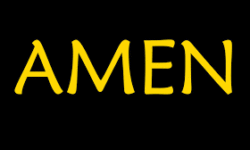A friend and I were debating a historical event. We each would let our mind race to the next piece of information without really hearing what the other was saying. Talking past each other, we were convinced of our own correct opinion, and not even realizing we were using the same words to mean something different. But it was more a test to see who had better data than it was a common pursuit of the truth.
Easterners approach learning and truth differently. Information is important (memorize Torah) but assimilating that truth is, too. It’s not just about what we know, it’s also about who we are. Rabbis use good questions to accomplish that goal. In fact, if you ask them a question, you are more likely than not to receive back a question by way of reply. By intentionally directing those questions, he leads the student or questioner to form his own answer. This method also draws people in towards conversation, instead of shutting it down with a quick retort.
We see this model in Jesus teaching.
“Who do people say I am?”
“And who do you say I am?“
He cut right to the heart of the matter with the invalid, “Do you want to be healed?“
He drew in the Samaritan woman, asking “where is your husband?” And to the adulteress, “where are your accusers?”
“Which of you, if his son asks for bread, will give him a stone?“
“How can the guests of the bridegroom mourn while he is with them?”
“Why do you ask me about what is good?”
In a culture as divided and polarized as ours, the question can be a powerful tool. Talking past each other has proven destructive and fruitless, but when someone asks a question it increases conversation instead of shutting it down. It builds relationship instead of walls. A good question can lead someone in the direction of Truth, and help him discover it for himself.
I want to be a good question asker – so I can learn, but also so I can point to Truth in the loving way modeled by my Rabbi. Let’s keep the conversation going.







